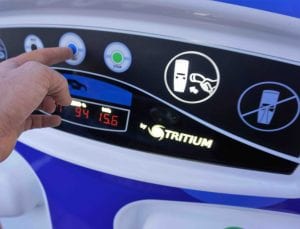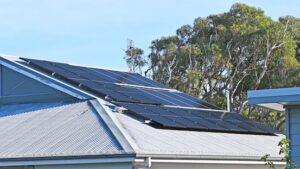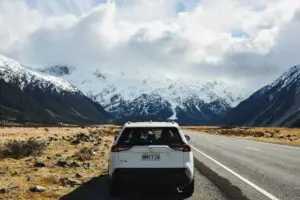
I have heard the casual refrain “electric vehicles will save the grid from the death spiral” too many times to count. The assumption is that people will charge their vehicles at home. That it would simply be too hard to supply the energy cheaply, in any other way, than via our century-old energy market.
Given Tesla is saying almost all of its charging stations will go off-grid, is it time to revisit this assumption? Absolutely.
All Superchargers are being converted to solar/battery power. Over time, almost all will disconnect from the electricity grid.
— Elon Musk (@elonmusk) June 9, 2017
I always enjoyed the phrase “to assume makes an ass of u and me”, a great way to remember the spelling, and so true as well.
The assumption that people will charge their vehicles at home with off-peak power is a cracker. Today, we don’t refuel our cars at home (or work), even though most people drive their cars to the same place everyday, park it for eight hours and then drive it home.
Charging your car at home not only requires a new pattern of consumer behaviour, it ignores the obvious opportunity – charging your car while it sits idle at work during the day, 5 days a week.
A 50km return trip to work will cost you about $1.50 in electricity. At that price, your company will probably pick up the tab, and it is certainly cheaper than the train ticket!
Need to shop on the way home? No problem. Looking at EV charging trends, many commercial shopping centres are realising the value of a free EV charge (in the hope of attracting visitors) is worth more than the cost of provision. Those same shopping centre’s are also putting MW’s of solar on the roof.
All of a sudden, instead of charging your EV at home, it looks like you will be returning home with more than 60kWh under the bonnet. 60kWh is enough to power a reasonably efficient home for six days. Still willing to bet people will charge their cars at home?
Set aside the practicalities of Tesla taking its charging stations off-grid for the moment (Musk is probably playing the crowd). There is a much easier off-grid play, once you join the dots.
What do you get when you join SolarCity with the world’s most recognised EV brand (Tesla), the world’s most recognised battery product (Tesla Powerwall) – and then throw some solar tiles in for fun? You get an irresistible combination of technologies which makes it oh so tempting to take the humble household off-the-grid.
A large solar system (5kW+), mid-size battery (13.5kWh for argument’s sake) and a car with 80kWh of storage is a compelling combination for a household energy solution.
The fixed solar and storage asset at home easily supplies your household power needs during a typical day. For six months of the year (summer, plus shoulder months), you probably have excess solar power during the day, perfect for topping up the car if it is parked at home.
For the other six months, your vehicle-to-home power supply kicks in, to get you through evening, morning and overnight peaks. You may have even charged your car (without needing the grid) at a Tesla charging station. If not, you charged for free at work, or the shops – talk about cheap off-peak power!
Apple didn’t create a smart phone by adapting a fixed line hand receiver – they re-invented the experience from scratch. It is time we did the same for energy.










